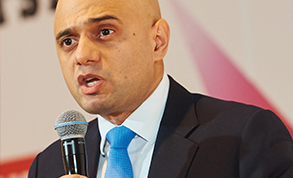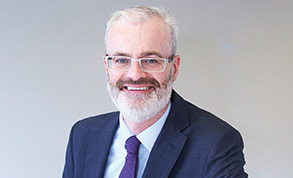Questions over 3% pay award
 The government had suggested a 1% award in evidence to the NHS and doctors’ and dentists’ review bodies earlier this year, but has accepted the independent bodies’ recommendation of a 3% rise.
The government had suggested a 1% award in evidence to the NHS and doctors’ and dentists’ review bodies earlier this year, but has accepted the independent bodies’ recommendation of a 3% rise.
The Welsh government also announced a 3% increase. In Scotland, nursing staff were offered 4% on average, which some nurses have rejected. The Northern Ireland executive has yet to make an announcement.
The 3% award in England and Wales, backdated to 1 April, will apply to all staff on Agenda for Change contracts, salaried GPs and hospital consultants. Senior managers’ pay is paused this year, and no recommendation was sought from the Review Body on Senior Salaries.
Many doctors are not included in the offer. Junior doctors are on a separate multi-year deal and have received a rise of 2%, while specialty and associate specialist doctors have moved to a new contract that aims to give them faster progress up the pay scale. GP contractors have their own five-year agreement that ends in 2023/24. Dentists’ contracts will be uplifted by 3%.
In a Commons statement, health and social care secretary Sajid Javid (pictured) said the pay rise was ‘expected to be a real-terms increase’ and overall amounted to a cost of £1.9bn for the Agenda for Change staff and £300m for consultants.
‘This is not without its challenges given the economic and fiscal context,’ he added.
However, health unions claimed the award would be a real-terms cut with some economists predicting inflation will rise to nearer 4% by the end of this year.
Finance directors have assumed that this year’s pay award will be funded in full, but this is not certain. In England, the budget for the second half of the year is yet to be finalised. A 2.1% increase in pay costs for this year was assumed in the five-year NHS funding settlement, though Covid has since changed NHS funding levels beyond recognition. Later, reports emerged that Downing Street had confirmed the rises must be funded from existing budgets, though it insisted this would not affect frontline care.
NHS Employers’ chief executive Danny Mortimer (pictured) told BBC Radio 4’s Today programme that employers were ‘relieved it’s 3% rather than 1%’.
 He continued: ‘The key question is whether the government is going to fund this pay award properly. We can’t have the situation where the assumption is that the NHS will make efficiencies, will cut the number of staff or reduce the services it provides to pay for this award. We can’t have the situation where some parts of the NHS, particularly specialist public health services, don’t receive the pay award in the same way as members who run hospital services.
He continued: ‘The key question is whether the government is going to fund this pay award properly. We can’t have the situation where the assumption is that the NHS will make efficiencies, will cut the number of staff or reduce the services it provides to pay for this award. We can’t have the situation where some parts of the NHS, particularly specialist public health services, don’t receive the pay award in the same way as members who run hospital services.
‘There’s still some work and explaining for the government to do, and we are worried about the longer term – what does this mean for the attitudes of staff and unions in future years around pay awards.’
NHS Providers chief executive Chris Hopson said: ‘We now need clarity that the rise is fully backdated and fully funded by government so we do not see money diverted away from other priorities that could impact on patient care.
‘The pay award should be seen as part of a wider commitment to investment in the workforce, including through additional support for staff health and wellbeing, and a regularly updated, fully funded and costed long term workforce plan to address current shortages and meet long term needs.’
Wales health minister Eluned Morgan said the Treasury had yet to announce if new funding would be available to cover the cost, but she added that current budgets would be prioritised to allow the deal to be implemented. She confirmed the Wales health and social care bonus of £735 would be paid on top of the uplift.
The Royal College of Nursing (RCN), which had been campaigning for a 12.5% rise, said it would consult its members on the action they wished to take in response to the award. RCN general secretary and chief executive Pat Cullen said the award must be fully-funded and ring-fenced.
‘Nursing staff will remain dignified in responding to what will be a bitter blow to many. But the profession will not take this lying down,’ she added.
The British Medical Association had called for a 5% rise for doctors, and echoed the RCN belief that 3% did not adequately reflect the contribution of NHS staff during the Covid pandemic.
BMA leader Chaand Nagpaul said: ‘Our members have been left exhausted, burned out and on the verge of physical and mental breaking point by the past 18 months. Junior doctors and GPs on multi-year pay deals in England have given just as much of themselves as all doctors to care for their patients – and yet have been callously disregarded in this pay award and will receive less than their peers.
‘Doctors, including those on multi-year pay deals, have given the same care to their patients. In recognition the government should now ensure they are all given the same fair pay uplift and it is something we will be calling upon government to review and think again in the coming days.’
Related content
We are excited to bring you a fun packed Eastern Branch Conference in 2025 over three days.
This event is for those that will benefit from an overview of costing in the NHS or those new to costing and will cover why we cost and the processes.